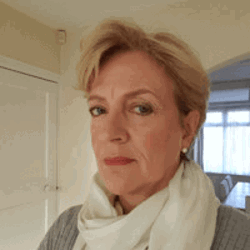New technologies that can detect hidden messages in AI-generated media and that use a new form of ‘sponge’ to help collect and test hazardous chemicals are among the latest UK Intelligence Community Postdoctoral Research Fellowships focusing on unclassified basic research that can support the intelligence, security and defence communities.
The fellowships, which are offered by the Government Office for Science and administered by the Royal Academy of Engineering, provide a vital link between academia and the intelligence community. Each awardee receives funding for at least two years of their project and mentorship from a Fellow of the Academy as well as an advisor from the intelligence community.
The new postdoctoral researchers are listed below:
- Dr Simon Birnbach, University of Oxford
Securely fusing cooperative and non-cooperative data for maritime domain awareness
Dr Birnbach is aiming to securely fuse satellite imagery with self-reported ship locations and wireless signal data. By combining these data sources in a secure manner, maritime surveillance systems will be better equipped to uncover advanced attacks and irregular activities at sea.
- Dr Dominic Hunter, University of Strathclyde
Ultra-stable quantum magnetometry for imaging in Earth's field environments
Dr Hunter is developing precise and stable quantum sensors to detect magnetic fields. These magnetometers are reliable tools for various critical applications benefiting society's safety and infrastructure, such as preventing power grid failures with early detection of solar storms and improving security by detecting concealed objects in airports and other secure facilities. - Dr Alex Samuel Loch, University of Glasgow
New preconcentrators for improved detection of low-volatility chemical threats
Conventional chemical identification methods are fraught with risks and inefficiencies, hindering first responders and government agencies from effectively and safely managing emergencies. Dr Loch wants to develop a new class of hazardous chemical-collecting ‘sponge’ built from a supramolecular, self-assembled scaffold that will enable improved capture of unknown chemicals and their release in controlled conditions. - Dr Peta Masters, King’s College London
Behavioural deception filter: recognising deception and exposing hidden behaviour
The first duty of a democratic government is to protect its citizens. Dr Masters’ work uses AI and human-like Goal Recognition for counter-deception purposes by clarifying the fundamentals of strategic deception: how it is done and why it works. - Dr Ned Thaddeus Taylor, University of Exeter
Interfaces: the make or break of devices
Interfaces (the join between materials) are the Achilles' heel of devices, being not only the source of most of the unique physics exploited in modern technology but also points of weakness. However, they are extremely difficult to simulate and to measure experimentally. Dr Taylor is using machine learning to predict the potential and limits of interfaces, thus leading to more resilient, efficient, and faster developed devices. - Dr Christian Schroeder de Witt, University of Oxford
Detecting AI-generated media and hidden messages therein
Dr Schroeder de Witt aims to identify AI-generated media, such as videos with audio, and detect hidden messages. By developing better tools for these purposes, we can protect against the misuse of AI for spreading false information or enabling unlawful secret communications, ultimately helping to safeguard public trust and security.
Learn more about the work of the 2024 UK Intelligence Community Postdoctoral Research Fellowships.
Notes for editors
- UK Intelligence Community (IC) Postdoctoral Research Fellowships are offered by the Government Office for Science to outstanding early career researchers. These Fellowships are designed to promote unclassified basic research in areas of interest to the intelligence, security and defence community. Each fellowship is capped at a maximum grant of £250,000 over a two-year period.
Submissions for the UK Intelligence Community Postdoctoral Research Fellowships 2025 will open in early December.

